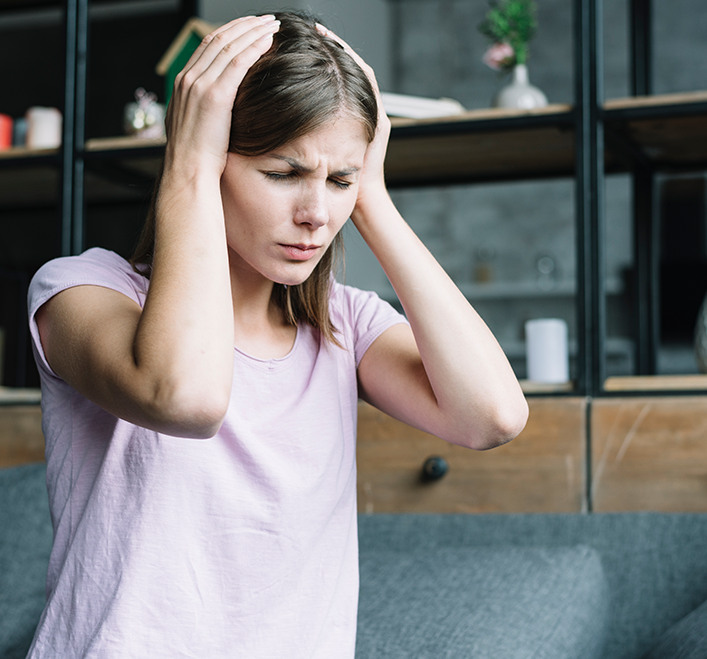Causes of Anxiety Disorder
Anxiety disorders are complex and can be caused by a combination of factors. Understanding the root causes of anxiety is crucial to addressing and managing symptoms effectively.
A family history of anxiety disorders may increase the likelihood of developing anxiety.
Imbalances in neurotransmitters like serotonin and GABA contribute to heightened anxiety.
Traumatic experiences, such as loss, abuse, or major life transitions, can trigger or worsen anxiety symptoms.
A high-stress environment, whether at home or work, can elevate anxiety levels over time.
Certain personality types, especially those prone to perfectionism or self-criticism, are more susceptible to anxiety.
Types of Anxiety Disorder
Anxiety disorders can manifest in various forms, each with its own set of symptoms and challenges. Ketamine therapy can be an effective treatment for several types of anxiety disorders.
- Generalized Anxiety Disorder (GAD)
Characterized by persistent and excessive worry about everyday matters, Ketamine can help calm the overactive brain circuits involved.
Recurrent, unexpected panic attacks cause intense fear and physical symptoms. Ketamine helps regulate these extreme responses.
Marked by a fear of social interactions and being judged, Ketamine can reduce these irrational fears and help improve confidence.
- Obsessive-Compulsive Disorder (OCD)
Anxiety-driven compulsions and intrusive thoughts are targeted with Ketamine therapy, which can alleviate obsessive tendencies.
- Post-Traumatic Stress Disorder (PTSD)
PTSD is often accompanied by severe anxiety, and Ketamine can help reduce the intensity of trauma-related symptoms.
Diagnosis of Anxiety Disorder
Proper diagnosis of anxiety disorders is critical for determining the most effective treatment plan. A thorough evaluation is necessary to confirm the diagnosis and rule out other potential causes.
A comprehensive evaluation with a mental health professional will assess anxiety symptoms, duration, and triggers.
Questionnaires such as the GAD-7 may be used to quantify the severity of anxiety symptoms.
- Physical Health Assessment
A physical exam may be conducted to ensure that symptoms are not caused by underlying medical conditions.
Reviewing personal and family medical history helps to identify potential genetic predispositions to anxiety.
In some cases, further evaluation by a psychiatrist may be necessary to confirm the diagnosis and recommend the best treatment options.
Ketamine Treatment for Anxiety Disorder
Ketamine infusion therapy offers an innovative solution for managing anxiety disorders, particularly for individuals who have not responded to traditional treatments. By targeting specific receptors in the brain, Ketamine can help reset neural pathways and provide fast-acting relief.
Unlike conventional treatments, which may take weeks to work, Ketamine can provide relief from anxiety symptoms within hours of the first infusion.
Ketamine affects the NMDA receptors in the brain, helping to regulate mood and reduce anxiety symptoms.
- Effective for Treatment-Resistant Anxiety
For individuals who haven’t responded to other medications, Ketamine offers a new option with proven results.
- Improves Emotional Regulation
By enhancing brain plasticity, Ketamine helps patients regain control over their emotions and reactions to stressors.
- Safe and Supervised Administration
At Ketamine Florida, all infusions are conducted in a controlled clinical setting under the supervision of medical professionals.
Related Conditions
Ketamine therapy can also provide relief for other related conditions, offering hope to those struggling with both anxiety and additional mental health challenges.
Often co-occurring with anxiety, Ketamine can help alleviate the symptoms of both depression and anxiety simultaneously.
Ketamine is effective in reducing the anxiety and fear responses associated with post-traumatic stress disorder.
Anxiety often accompanies chronic pain, and Ketamine can help reduce both pain and anxiety symptoms.
For those with bipolar disorder, Ketamine can help manage the depressive and anxious phases of the condition.
Ketamine therapy has shown promise in reducing anxiety associated with withdrawal and recovery in individuals with substance use disorders.




